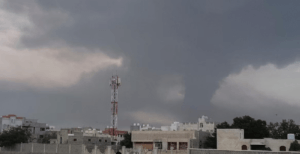Nasrallah’s Death Sparks New Wave of Violence in Lebanon: Over 1,000 Killed in Two Weeks
Nasrallah’s Death Sparks New Wave of Violence in Lebanon: Israeli airstrikes killed Hezbollah leader Hassan Nasrallah, sparking intense fighting between Israel and Hezbollah. Over 1,000 people have been killed and thousands wounded in the past two weeks. Lebanon’s government has called for a diplomatic solution to the conflict.
CONTENTS:

Nasrallah’s Death Sparks New Wave of Violence
Israel expands Yemen airstrikes
Israel expanded its military operations by launching airstrikes on Houthi targets in Yemen’s Hodeidah port on Sunday. This move followed recent missile attacks from the Houthis on Israel and occurred days after Israel claimed responsibility for killing Hezbollah leader Sayyed Hassan Nasrallah in Lebanon. The escalation has heightened concerns that the conflict could spread further, potentially involving Iran and the United States, Israel’s key ally.
Israel conducted additional strikes in Lebanon, continuing its heavy bombardment that has been ongoing for two weeks.
This campaign has resulted in the deaths of several top Hezbollah leaders and displaced hundreds of thousands of residents. According to Lebanon’s Health Ministry, Israeli airstrikes on Sunday killed 24 people in Ain Deleb in the south and 21 in Baalbek-Hermel in the east. Additionally, 14 medics were reported killed in airstrikes over the past two days.
Israel expands Gaza offensive
Nasrallah’s Death Sparks New Wave of Violence: Israeli drones hovered over Beirut overnight and much of Sunday, with loud explosions from new airstrikes resonating across the city. Since the Gaza conflict, which began after Hamas’ October 7 attack, Hezbollah and Israel have been exchanging fire across the border. During this time, Yemen’s Houthis have also launched occasional attacks on Israel and disrupted shipping in the Red Sea.
Two weeks ago, Israel intensified its strikes on Hezbollah, aiming to secure northern regions for residents to safely return home, while targeting much of Hezbollah’s leadership. Israel’s defense minister is now considering expanding the offensive.
US-made bomb kills Nasrallah
Nasrallah’s Death Sparks New Wave of Violence The death of Hassan Nasrallah, who had led Hezbollah for 32 years, was a major blow to the group. In response, Hezbollah launched renewed rocket attacks on Israel, while Iran vowed to avenge his death.
The United States has called for a diplomatic resolution to the conflict in Lebanon but has also authorized additional military deployments in the region, signaling growing concerns.
In an interview with NBC, Senator Mark Kelly, chair of the US Senate Armed Services Airland Subcommittee, revealed that the bomb used by Israel to kill Nasrallah was a 2,000-lb (900-kg) American-made guided weapon.
US urges diplomacy, Iran mourns
Nasrallah’s Death Sparks New Wave of Violence White House national security spokesperson John Kirby emphasized that an all-out war with Hezbollah or Iran would not aid northern Israel residents in returning home, advocating for a diplomatic solution instead.
In Iran, where Hezbollah was formed in the early 1980s with its support, senior officials mourned the loss of a high-ranking Revolutionary Guards member killed alongside Nasrallah. Tehran has also called for a UN Security Council meeting to address Israel’s actions.
Meanwhile, sources told Reuters that Iranian Supreme Leader Ayatollah Ali Khamenei was moved to a secure location following Nasrallah’s death.
Nasrallah’s body recovered, Lebanon mourns
Nasrallah’s Death Sparks New Wave of Violence Nasrallah’s body was recovered intact from the site of Friday’s airstrike, according to a medical and security source on Sunday. Hezbollah has not yet announced the date for his funeral.
Over his 32-year leadership, Nasrallah not only strengthened Hezbollah’s influence within Lebanon but also positioned it as a key player in Iran’s network of allied groups across the Arab world. Supporters and many Lebanese who praised Hezbollah’s resistance against Israel mourned his death on Sunday.
“We lost the leader who gave us the strength and faith that we could turn our beloved small country into a paradise,” said Sophia Blanche Rouillard, a Christian woman in Beirut, carrying a black flag to work.
Lebanon’s Health Ministry reported that over 1,000 Lebanese had been killed and 6,000 wounded in the past two weeks, without specifying how many were civilians. The government stated that a fifth of the population—about one million people—had fled their homes.
In Beirut, some displaced families took refuge on benches at Zaitunay Bay, a popular waterfront area with restaurants and cafes. On Sunday morning, families with only duffle bags of clothes rolled out mats to sleep and made tea. “You can’t destroy us, no matter how much you bomb or displace people—we are staying. This is our country,” said Francoise Azori, a Beirut resident jogging nearby.
The UN World Food Programme has launched an emergency effort to provide food to those affected by the conflict.
Israel intensifies attacks, Lebanon mourns
Nasrallah’s Death Sparks New Wave of Violence On Sunday, Israel’s military reported striking numerous targets in Lebanon, including missile launchers and weapons depots. Its navy intercepted eight projectiles from Lebanon and one from the Red Sea.
Israeli fighter jets also targeted power stations and ports in Rass Issa and Hodeidah, accusing the Houthis of operating under Iran’s direction and collaborating with Iraqi militias. Israeli Defense Minister Yoav Gallant stated, “Our message is clear—no place is too far for us.”
Nasrallah’s death marked the end of a difficult two weeks for Hezbollah, beginning with the destruction of thousands of its communications devices, an act widely attributed to Israel, though unconfirmed. Hezbollah’s vast arsenal has long been a source of tension in Lebanon, with critics accusing the group of dragging the country into conflicts and weakening the state.
Despite his past criticism of Hezbollah, Lebanon’s top Christian leader, Maronite Patriarch Bechara Boutros Al-Rai, said Nasrallah’s killing had “opened a wound in the heart of the Lebanese.”
Check out TimesWordle.com for all the latest news
You must be logged in to post a comment.